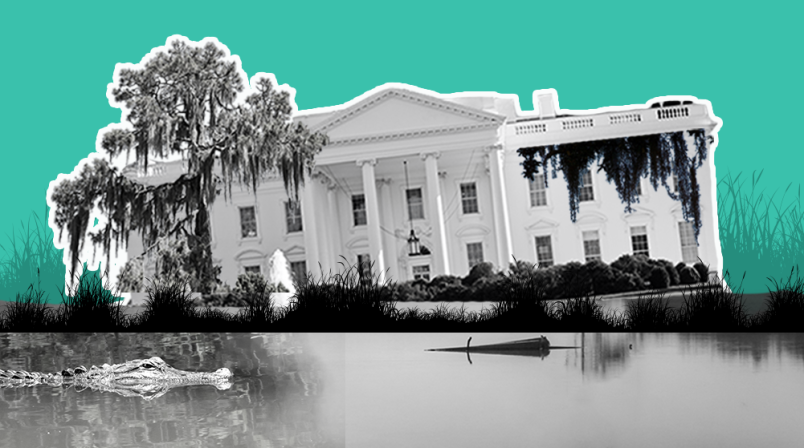Despite invoking the wartime law that allows the federal government to direct corporations to produce needed supplies, President Donald Trump hasn’t actually utilized the law.
“I invoked the Defense Production Act, and last night, we put it into gear,” Trump said Friday.
But he left it at that. And to date, it’s unclear that the law has been used as anything but leverage to coax companies into volunteer supply chain efforts — piecemeal work producing things like ventilators and masks.
Jeff Bialos, who served as deputy undersecretary of Defense for Industrial Affairs from 1999-2000, described it to TPM as “a sort of an ad hoc mobilization based on volunteerism.”
The Trump administration could survey major industry players, evaluate existing capacity, then use the federal authority to surge supplies, he said. But they haven’t.
“Their stubborn refusal to utilize the DPA’s powers and tools in the face of this ongoing crisis is not only head scratching, it’s downright self-defeating,” said Bialos, who is now a partner at the law firm Eversheds Sutherland.
On Tuesday, FEMA administrator Peter Gaynor said the law would be used to produce tens of thousands of COVID-19 test kits. But by the end of the day, a spokesperson for the emergency management agency said “at the last minute we were able to procure the test kits from the private market without evoking the DPA.”
Why the hesitation from Trump? He said Sunday that although he’d invoked the DPA, “we’re a country not based on nationalizing our business.” But that’s not at all what the law does.
A New York Times report shed some light on the situation: The U.S. Chamber of Commerce and the leaders of several major corporations had lobbied the administration against using the act, and Trump — as well as his son-in-law Jared Kushner and the White House economic adviser Larry Kudlow — had been persuaded not to.
There’s another consideration the Times noted: If Trump orders companies to prioritize the production of certain supplies pursuant to the DPA, the President could be seen as assuming responsibility for the speed with which those supplies were produced.
“If something goes wrong then it’s on the President,” an unnamed senior administration official told Vox. “And that’s something he doesn’t want to happen.”
Nonetheless, a growing chorus of voices has urged the President to utilize the law.
“If the ultimate objective is to save American lives, there is no alternative to utilizing the DPA immediately and to the fullest extent,” a lengthy list of former defense and national security officials, including former Pentagon Chief Chuck Hagel, wrote Wednesday.
Among the governors calling for Trump to fully utilize the law was New York’s Andrew Cuomo, who said in a a press conference and then in a tweet Tuesday, “I do not understand the reluctance to use the federal Defense Production Act to manufacture ventilators.”
Later the same day Trump addressed governors critical of him during a White House town hall event hosted by Fox News. The federal government could help, he implied, but there would be a political price. It’s “a two-way street,” Trump said of governors asking for federal help. “They have to treat us well, also.”
In New York, he said, “we’re literally building hospitals and medical centers, and then I hear there’s a problem with ventilators.”
The next day, like other Democratic governors in need of Trump’s help, Cuomo had changed his tone.
Trump was using the DPA “well,” he said, and as “basically a leverage tool” with private industry.
There was still a dire shortage of the breathing machines, Cuomo said, but his bottom line was clear: “I want to thank the President for his cooperation.”



